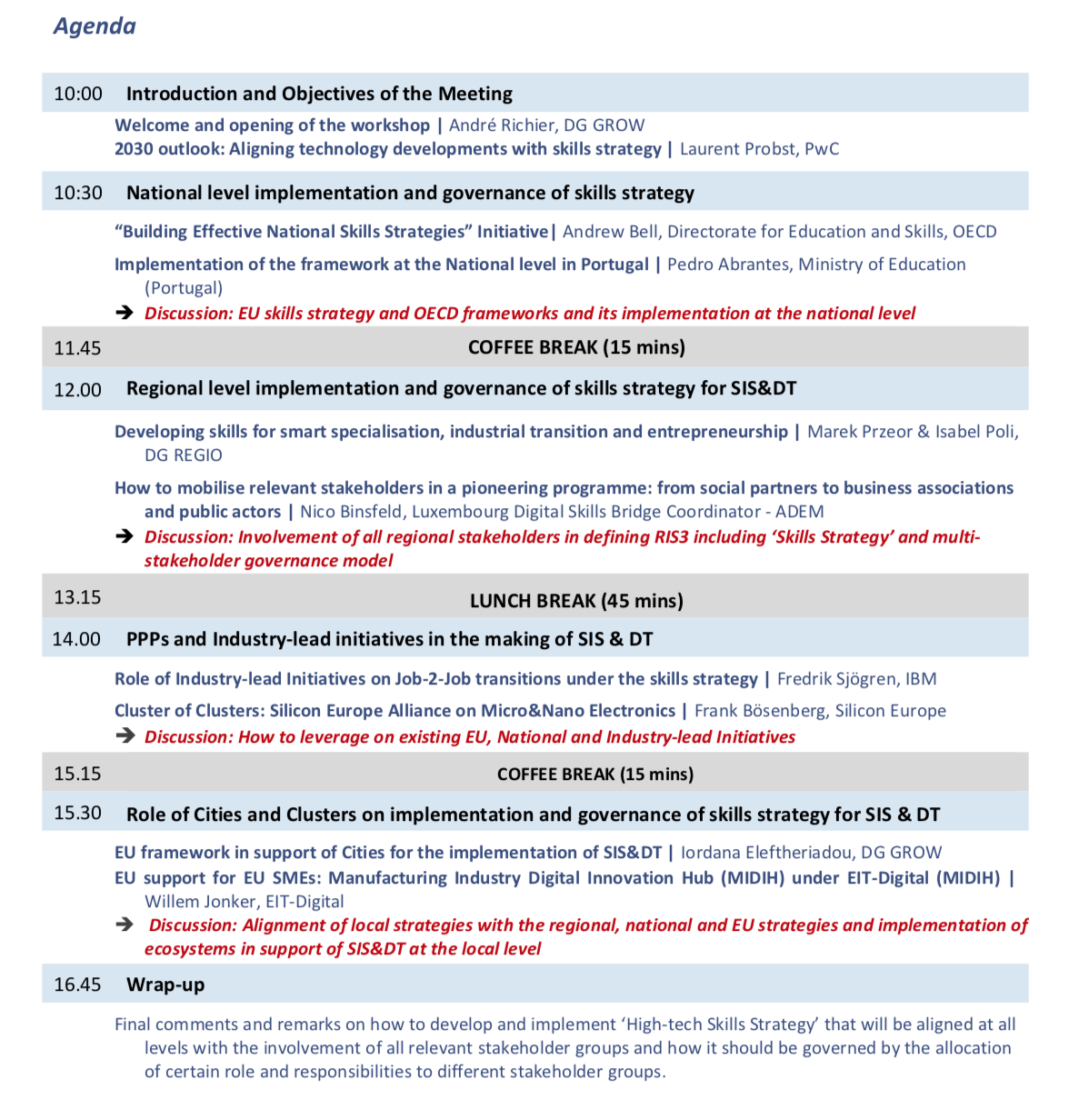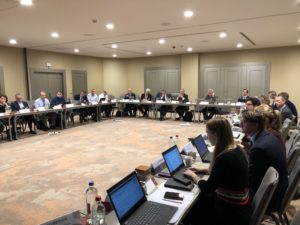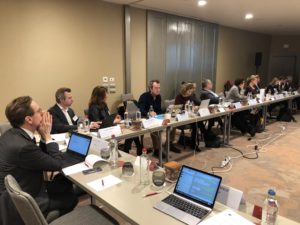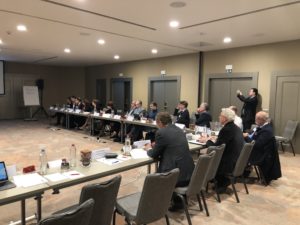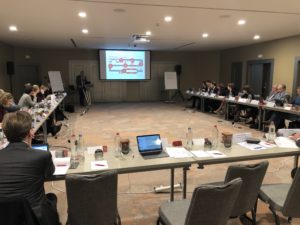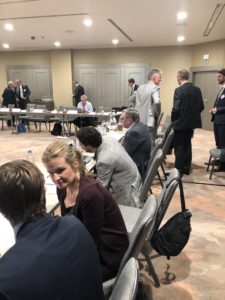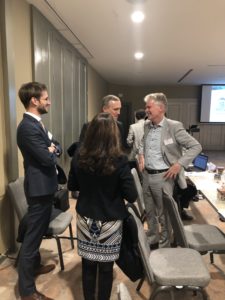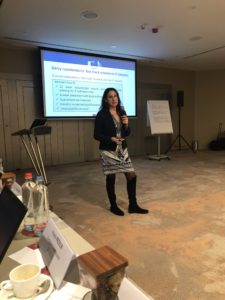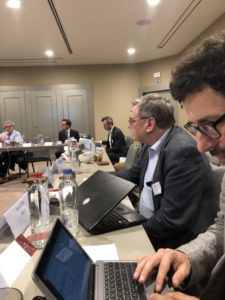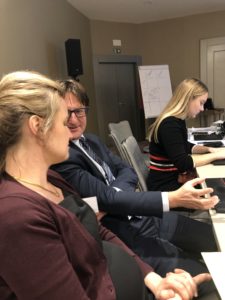4th Expert Workshop on “EU 2030 Vision”
On 12th of December 2018, CEO in SPCleantech, Janusz Kahl participated in the 4th Expert Workshop in NH Collection Grand Sablon in Brussels.
Context and Goal of the 4th Expert Workshop:
‘Skills for Smart Industrial Specialisation and Digital Transformation (SIS&DT)’ project came to a stage of developing specific modules under the Toolbox to be used by individuals, companies, policy makers at all levels for the operationalisation of the ‘EU 2030 Vision on High-tech skills for SIS&DT’.
This fourth workshop aimed to have in-depth discussion around two key modules of the Toolbox that are linked to one another, namely ‘Skills Strategy’ and ‘Leadership and Governance’.
For this reason, key participants representing different stakeholder groups at all levels (i.e. Supra-national, National, Regional, City, Cluster, Industry) have been invited to this workshop for having collective discussions on:
- Defining the ‘Skills Strategy’ that is linked at all levels (i.e. individual, company, city, regional, national, EU)
- Defining the ‘Leadership and Governance’ structure for being responsible from the implementation of the defined Skills Strategy at a given perimeter.
Key questions to be discussed during the workshop included:
Skills Strategy
- Can we incorporate ‘High-tech Skills Strategy’ as a mandatory component under RIS3?
- How can it be ensured to have link between the ‘High-tech Skills Strategy’ with other strategies such as RD&Innovation, Education, Industrial, Sustainable Development, Finance?
- How to best leverage on Clusters in developing and implementing the high-tech skills strategy, through Clusters?
- How to best leverage on other EU/National Initiatives on the implementation of the Skills Strategy such as:
Digital Innovation Hubs (DIHs), European Technology Platforms, Joint Initiatives, cPPPs, EIT-Digital and Manufacturing Industry Digital Innovation Hub (MIDIH) under EIT-Digital, ICT Innovation for Manufacturing SMEs (I4MS) Initiative, KETs Excellence Centres and Associations as well as existing Corporate Academies?
- How to create a link between EU Digital Agenda Toolbox and Skills for SIS&DT Toolbox?
- How to link the High-tech Skills Strategy with UN Sustainable Development Goals (SDGs)?
Leadership and Governance
- How to establish and govern the ‘‘Territorial Skill Council (TSC)’’?
- How to ensure coherence between TSC and city, national and EU level authorities?
- Which stakeholder groups should be given which kind of roles and responsibilities at the Governance?
